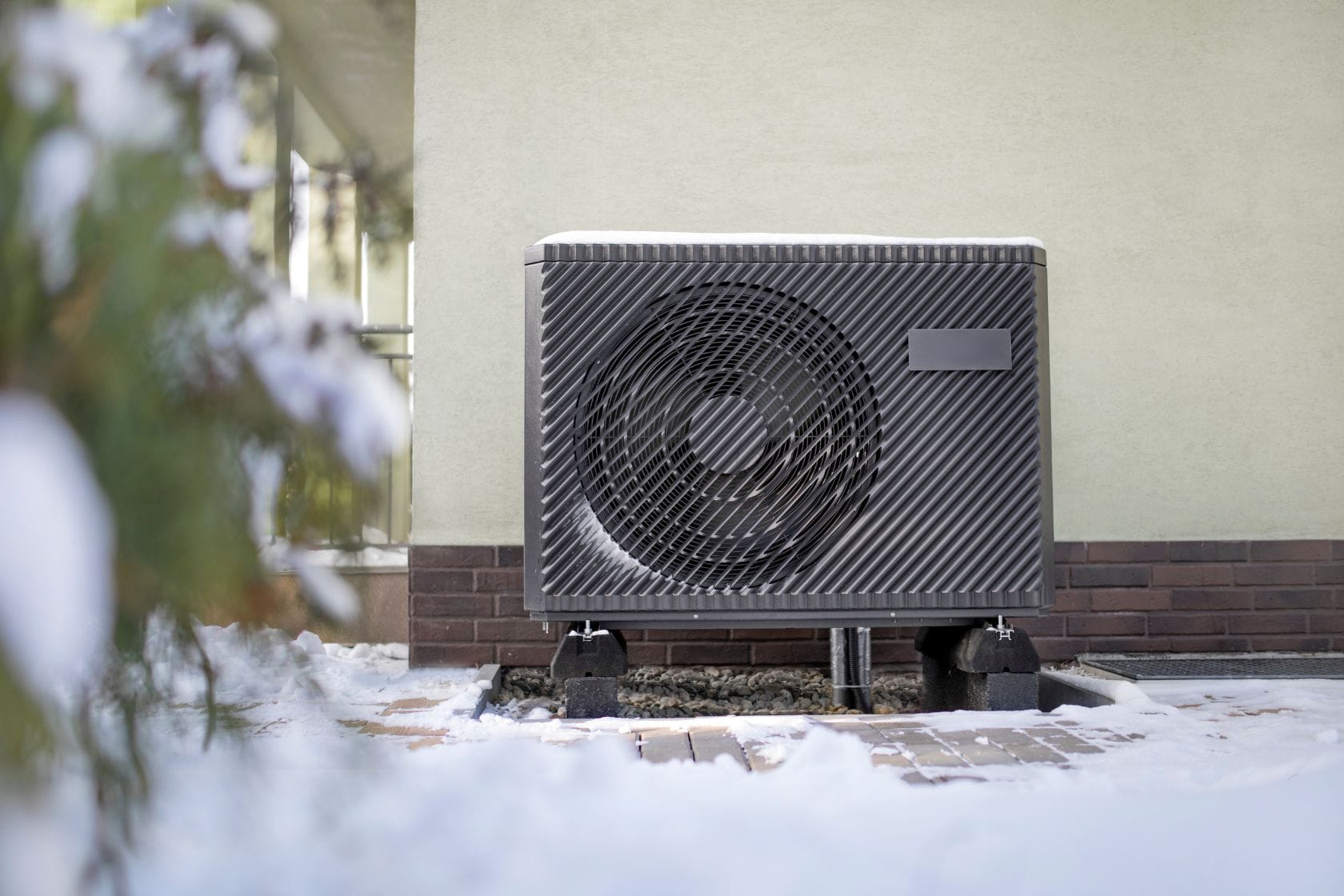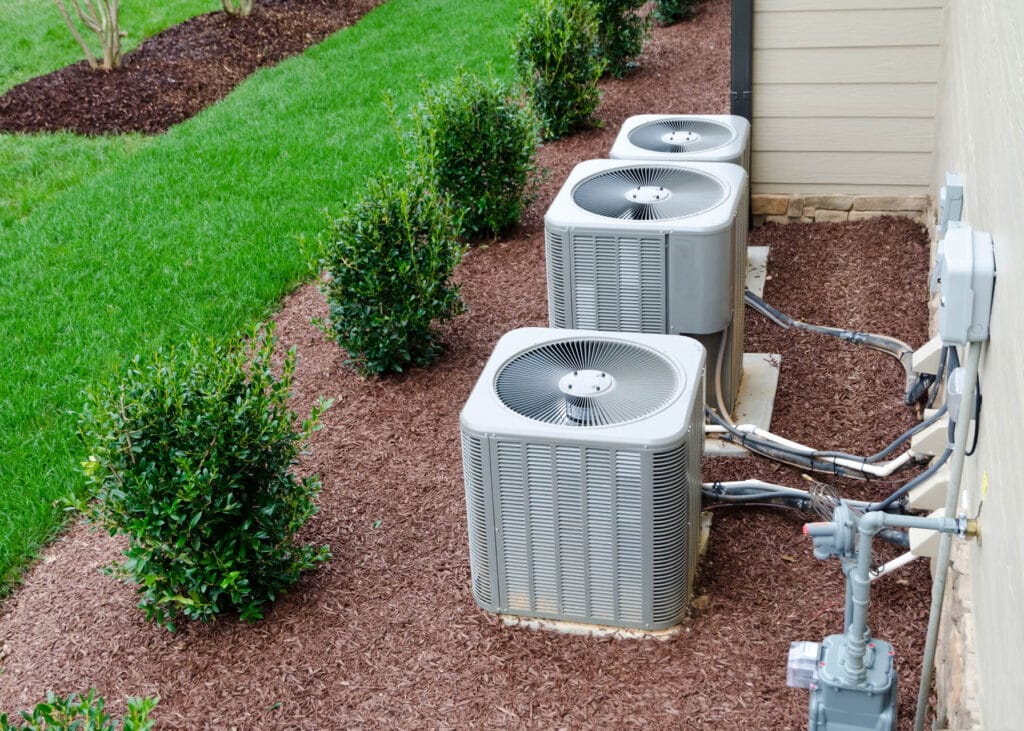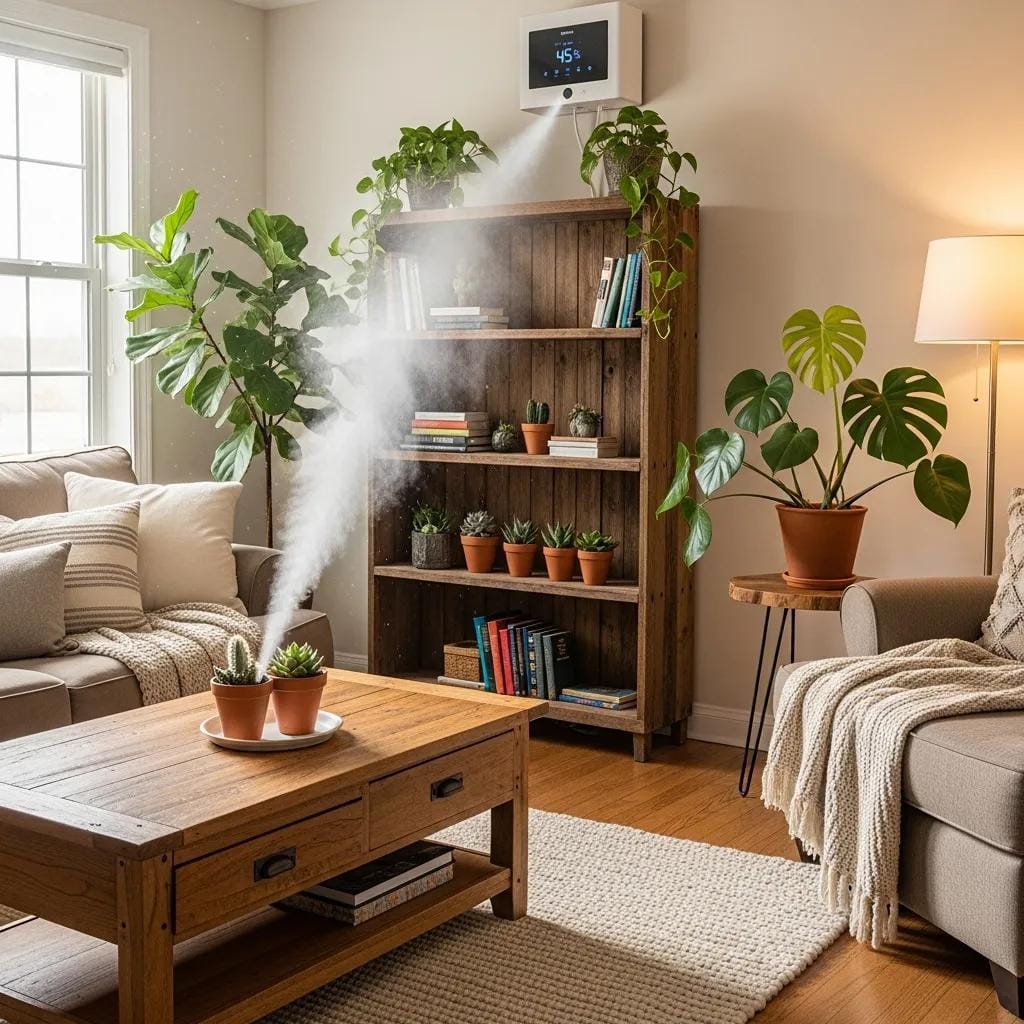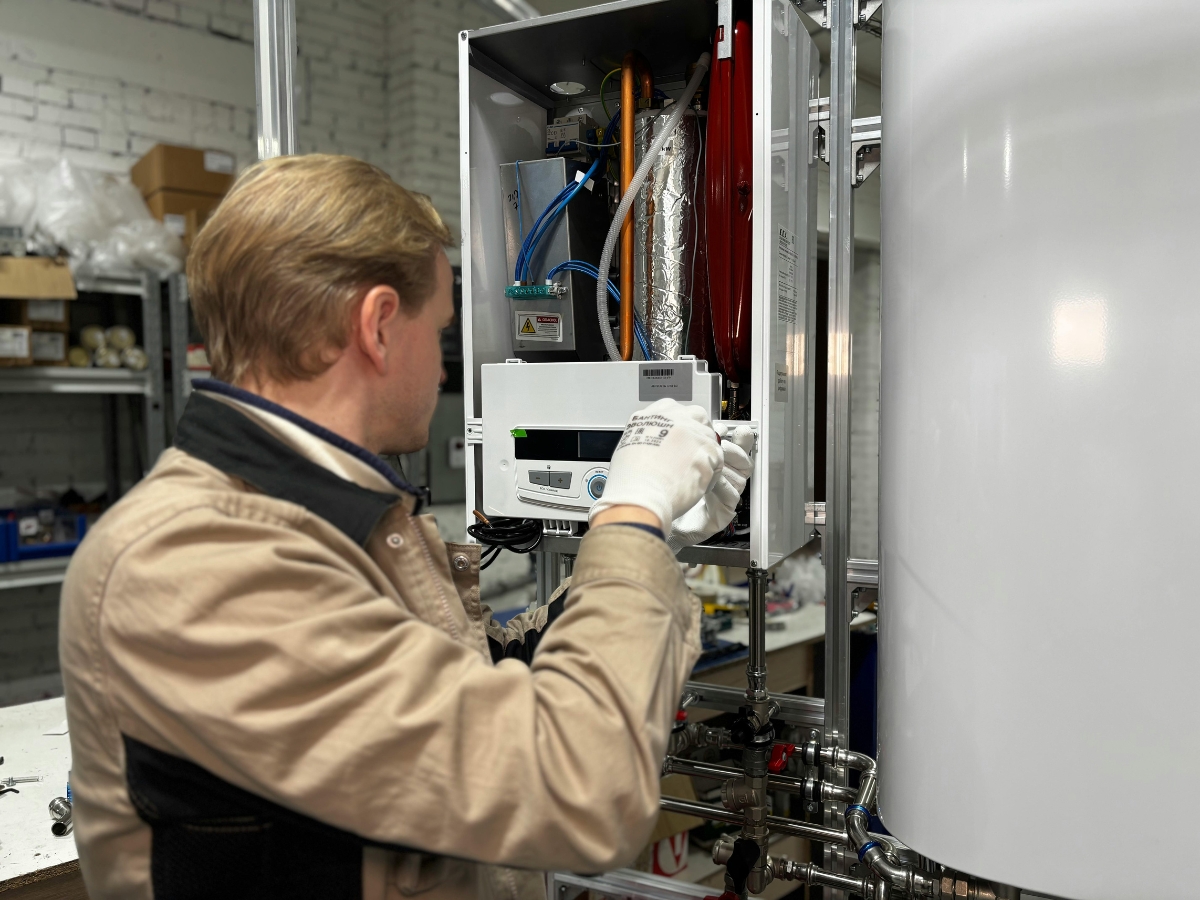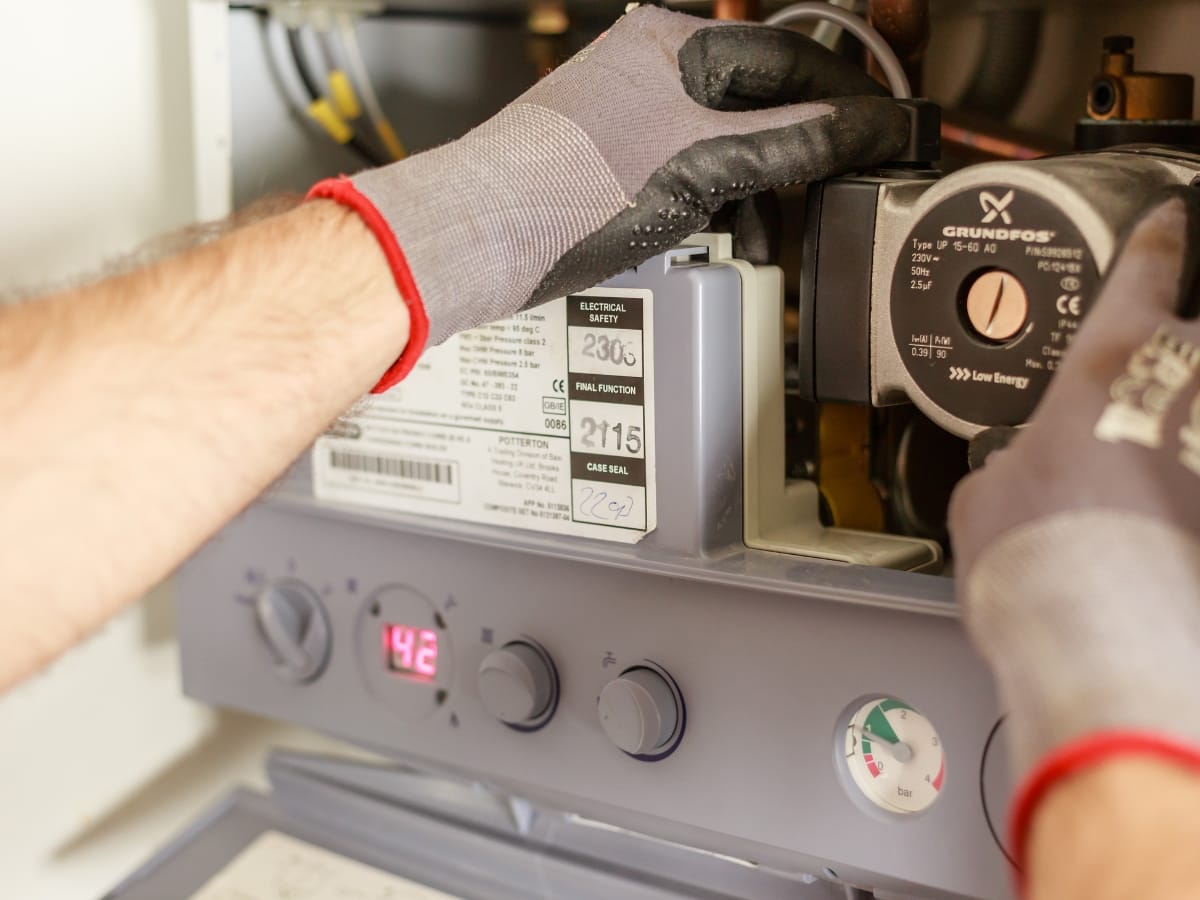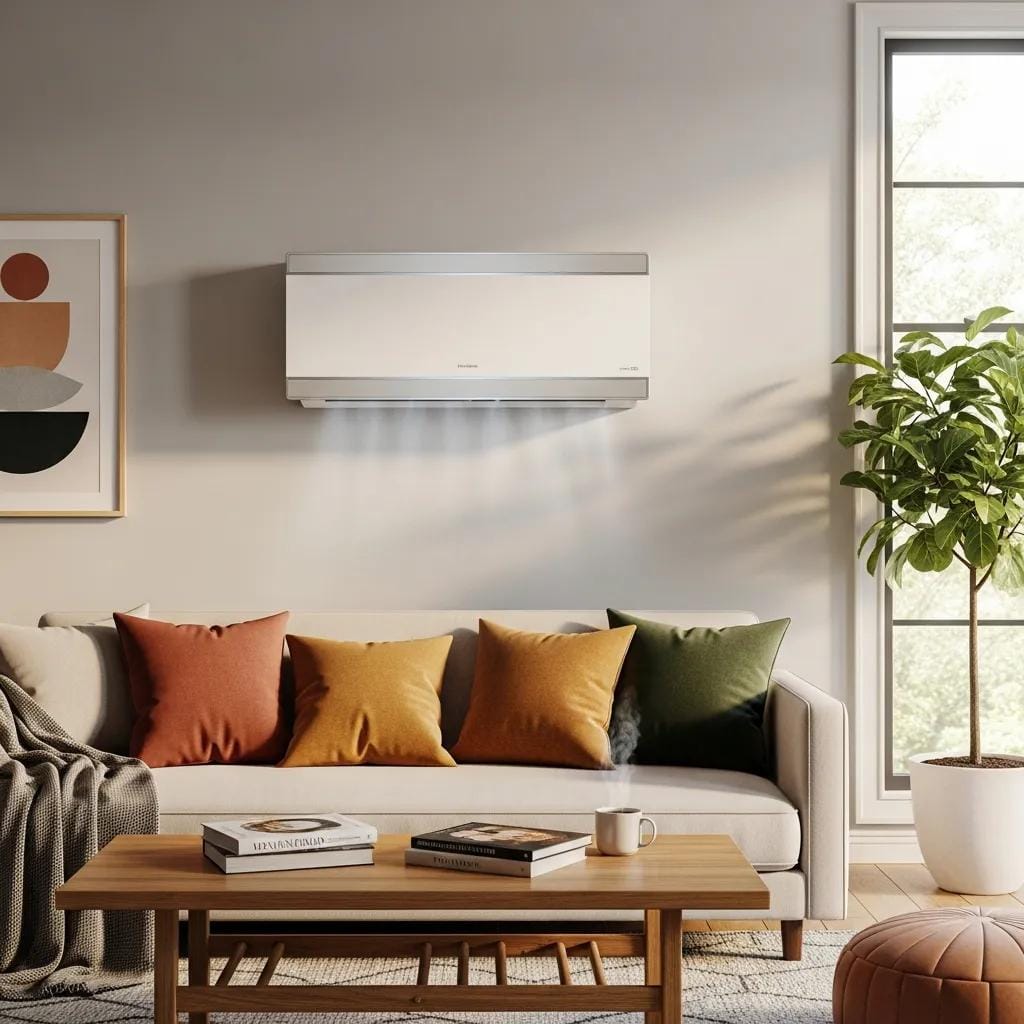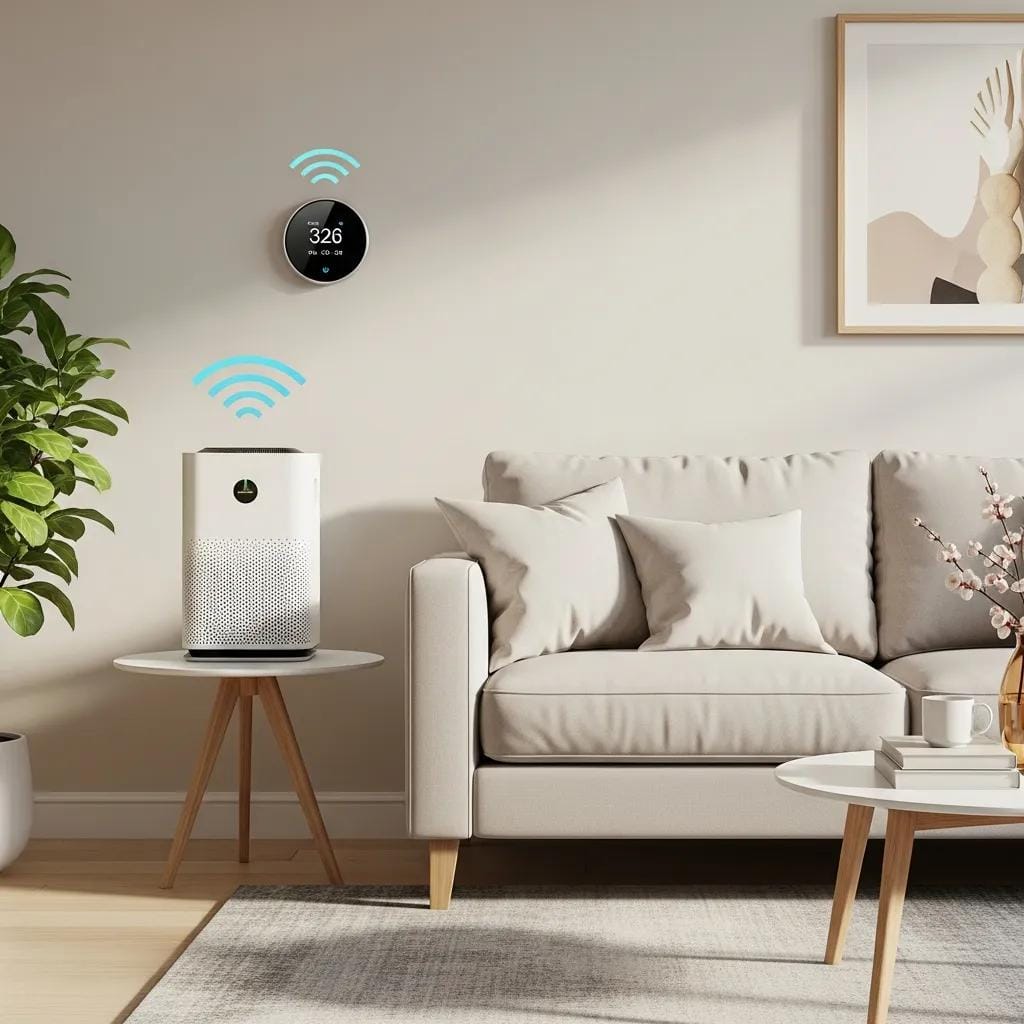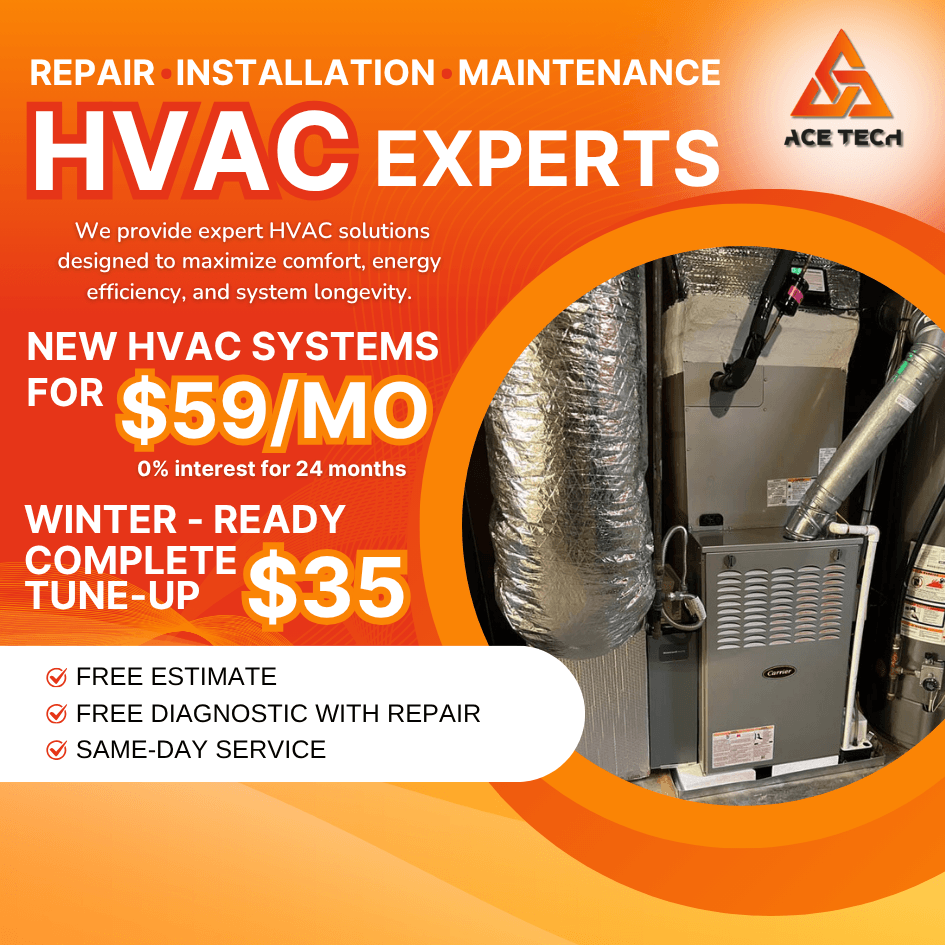Your HVAC system is the backbone of your home’s comfort, working year-round to maintain the perfect temperature. But like any hardworking machine, it needs routine care to perform at its best. Regular maintenance helps improve efficiency, extend the system’s lifespan, and prevent costly breakdowns.
One common question homeowners ask is, how often should you service your HVAC? The answer depends on several factors, including the system’s age, how often it’s used, and your local climate.
Neglecting HVAC maintenance—such as skipping air conditioning maintenance or delaying inspections—can lead to unexpected problems, from reduced airflow to skyrocketing energy bills. That’s why experts recommend following a structured HVAC maintenance checklist to keep your system running efficiently.
In this guide, we’ll break down how often should you get your HVAC serviced, the ideal maintenance schedule and the signs that indicate your system may need extra attention.
Deep Dive on HVAC Service & Maintenance
How Often to Service HVAC Units?
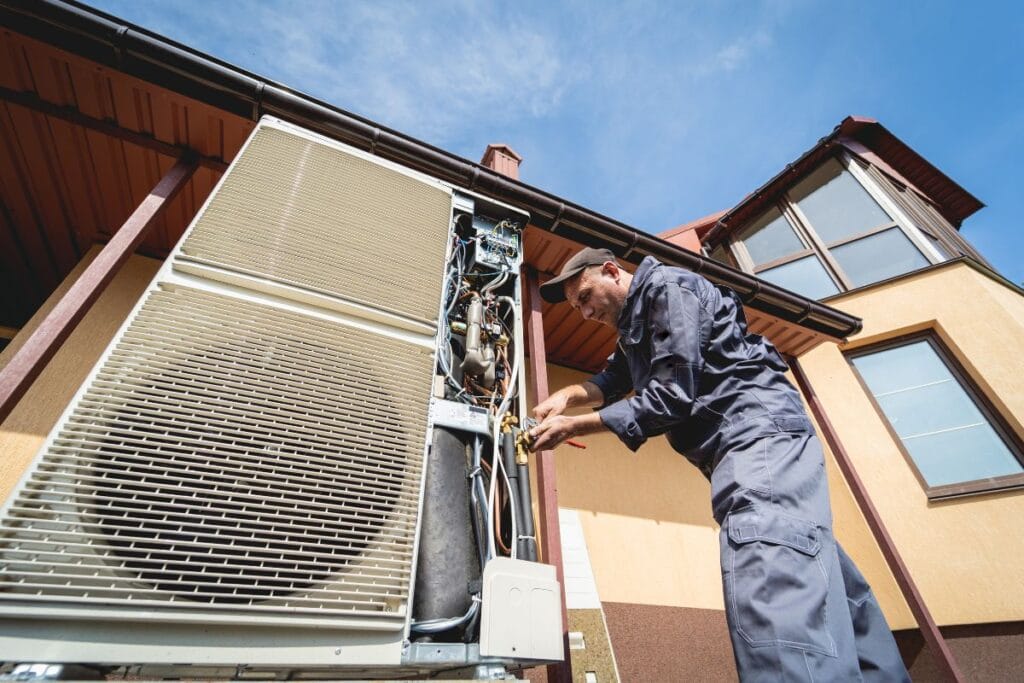
When it comes to upkeep, consistency is crucial—HVAC maintenance focuses on keeping your heating and cooling equipment running efficiently by preventing wear and tear, improving performance, and reducing the risk of breakdowns.
General Guideline on When to Book HVAC Maintenance
For most homeowners, servicing HVAC systems regularly at least once a year is enough to maintain peak performance. A professional air conditioner service in the spring ensures your cooling system is ready for the summer heat, while a fall HVAC system maintenancecheck-up preps your heating system for colder months.
Heavy-Use or Older Systems: Bi-Annual Service
If your HVAC system is more than 10 years old or operates in extreme temperatures year-round, it’s best to schedule servicing twice a year—once in the spring and again in the fall. Since how often should you service your HVAC directly affects its performance, bi-annual maintenance helps catch potential issues early and prevents unexpected breakdowns when you need your air conditioner or furnace the most.
Routine maintenance focuses on cleaning, inspecting, and optimizing components, ensuring your system runs smoothly while lowering energy costs. Whether you have a newer or older unit, staying on top of regular upkeep helps maximize efficiency and extend your system’s lifespan.
Checking HVAC Systems: Factors to Consider
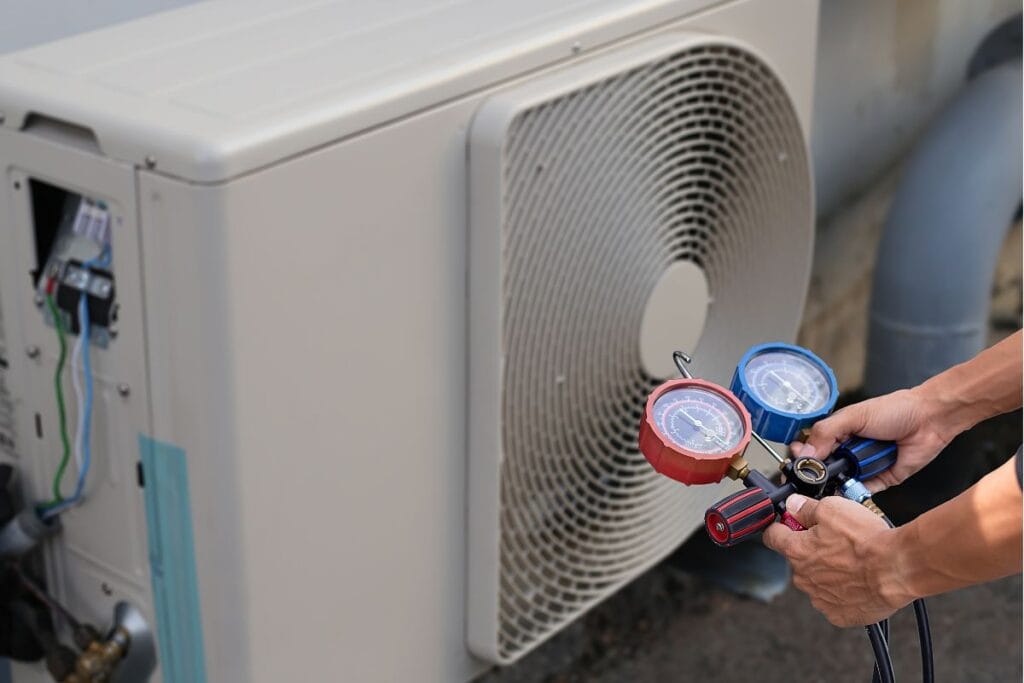
Not all HVAC systems require the same level of care. Following an HVAC maintenance checklist can help determine how often your system needs servicing, as factors like system age, climate, usage, and equipment type all play a role in its upkeep.
1. System Age and Frequency of HVAC Maintenance
Just like any mechanical system, an HVAC system needs more attention as it ages.
- Newer HVAC Systems: If your system is relatively new and well-maintained, air conditioning maintenance and heating system check-ups once per year are usually sufficient to keep it running efficiently.
- Older HVAC Systems: As systems age (typically 10+ years), components wear out faster. To prevent unexpected HVAC issues, it’s best to schedule HVAC maintenancetwice a year—once in the spring and again in the fall.
2. Usage and Climate Impact on Servicing HVAC Systems
How often you use your air conditioning system and heater also affects your HVAC maintenance schedule.
- Heavy Use (Hot & Cold Climates): If you live in a region with scorching summers or freezing winters, your air conditioner and heating system are working overtime. In these cases, schedule air conditioner and heating maintenance twice a year to ensure they stay in peak condition.
- Moderate Use (Temperate Climates): If you experience mild weather with limited heating and cooling needs, an air conditioner service and heater check-up once a year is usually enough to keep things running smoothly.
3. Type of HVAC System and Service Requirements
Different types of HVAC systems have varying maintenance needs, depending on how often they operate.
- Heat Pumps: Because heat pumps provide both heating and cooling year-round, they require more frequent servicing. You should schedule HVAC maintenance every 6-12 months to prevent performance issues.
- Gas Furnaces & Condensing Units: These systems typically require less frequent maintenance, needing servicing HVAC every 18-24 months. However, an annual inspection is still recommended to ensure efficiency and safety.
By understanding these factors, you can set up an schedule that keeps your system running efficiently, extends its lifespan, and helps you avoid unexpected breakdowns.
Recommended Schedule for Air Conditioning Maintenance

A well-planned maintenance schedule is essential for keeping your system running efficiently when you need it most.
How often should you service your HVAC? The answer depends on factors like system age and usage, but regular upkeep—whether for a brand-new unit or an older system—helps prevent costly repairs and unexpected breakdowns. Staying on top of air conditioner maintenance ensures optimal performance and extends the lifespan of your equipment.
Spring & Fall Check-Ups: Air Conditioner Maintenance
The best time to get air conditioning maintenance is before peak seasons—spring for cooling systems and fall for heating systems. This allows a professional technician to inspect and clean your system before it’s put under heavy strain.
• Spring Maintenance: Prepares your air conditioning system for the summer heat by cleaning coils, checking refrigerant levels, and ensuring proper airflow.
• Fall Maintenance: Focuses on heating components to get your system ready for colder months while also checking for any wear and tear from the summer.
By staying ahead of the weather, you can keep your HVAC system running efficiently and reduce the risk of performance issues when temperatures spike or drop.
For Heavy-Use or Older Systems: Bi-Annual Air Conditioner Service Is Ideal
If your air conditioning system sees heavy use—such as in areas with long, hot summers—or if your HVAC system is over 10 years old, bi-annual air conditioner maintenance is highly recommended.
• Older HVAC systems tend to develop HVAC system issues more frequently, so servicing them twice a year helps extend their lifespan and maintain efficiency.
• High-usage systems work harder throughout the year, increasing wear and tear. Regular maintenance prevents breakdowns and keeps energy costs low.
By following a consistent schedule, you’ll ensure your air conditioner operates at peak efficiency, providing consistent comfort while reducing energy bills and repair costs.
Signs Your HVAC System Needs Immediate Attention
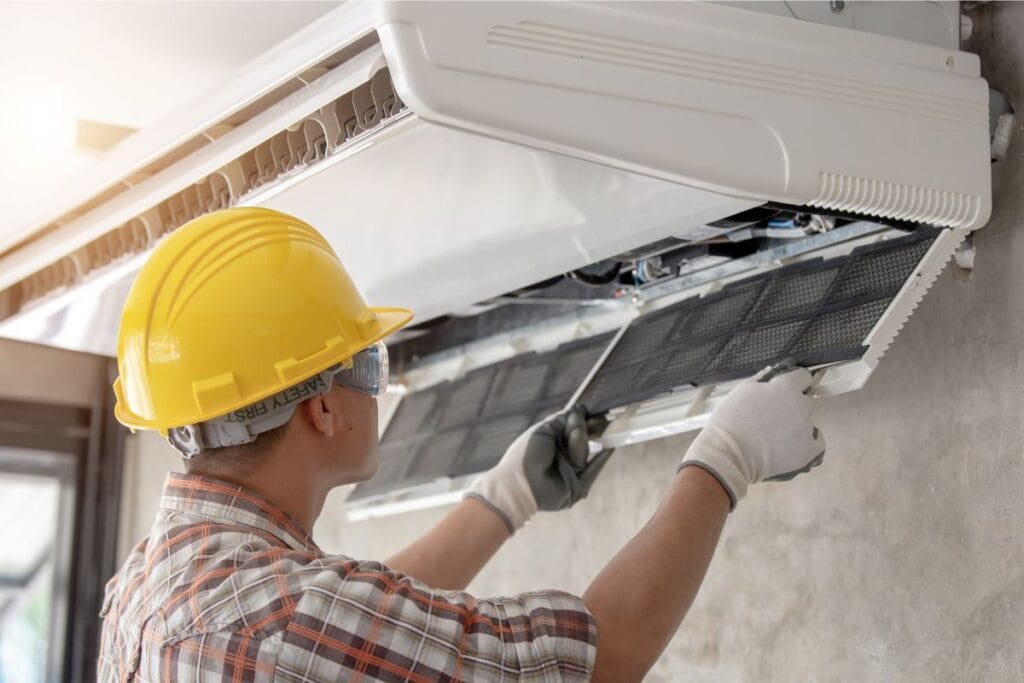
Even with regular HVAC maintenance, problems can still arise. Recognizing the early warning signs of trouble is just as important as sticking to a routine—after all, how often should you service your HVAC plays a key role in preventing costly repairs and unexpected breakdowns. If you notice any of the following issues, it’s time to have a professional inspect your system right away.
1. Strange Noises or Persistent Rattling
Your air conditioner and heating unit should run smoothly and quietly. If you hear banging, grinding, squealing, or rattling noises, it could indicate loose parts, a failing motor, or other internal damage that requires immediate attention.
2. Uneven Temperatures in Different Rooms
If some rooms are noticeably hotter or colder than others, your system may not be distributing air properly. This could be due to clogged air filters, ductwork issues, or a malfunctioning thermostat. A professional inspection can pinpoint and resolve the issue.
3. Higher Energy Bills Without Increased Usage
An unexplained spike in energy bills often signals an inefficient system. When your heating and cooling equipment struggles to maintain the set temperature, it works harder, consuming more energy. Routine maintenance can help prevent this problem by keeping components clean and running efficiently.
4. Musty Odors or Excessive Indoor Humidity
A musty smell coming from your vents could mean mold or mildew is growing inside your air conditioner or ductwork. Excess humidity in your home is another red flag, as a properly functioning system should regulate moisture levels effectively. Addressing these issues promptly can improve indoor air quality and prevent further damage.
5. Frequent Cycling On and Off
If your air conditioner or heater turns on and off too frequently, known as short cycling, it could be due to an overworked system, a clogged air filter, or a faulty thermostat. Ignoring this problem can lead to higher energy costs and potential system failure.
If you experience any of these warning signs, don’t wait—getting a professional inspection and necessary maintenance can save you from major repairs and keep your home comfortable year-round.
Why Regular HVAC Tune-Ups Matters
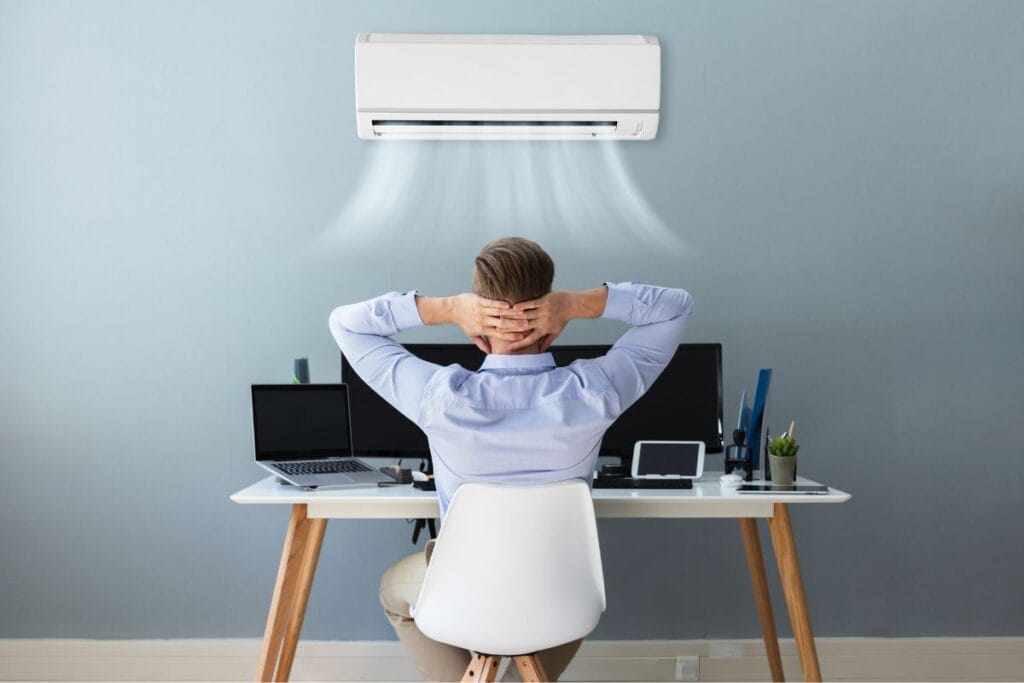
Keeping up with routine maintenance isn’t just about preventing breakdowns—it’s an investment in your home’s comfort, efficiency, and air quality. Factors like how often should you service your HVAC directly impact system performance, energy savings, and long-term reliability. Here’s why staying on top of maintenance is essential.
1. Increases Energy Efficiency
A clean, well-maintained system runs more efficiently, using less energy to heat or cool your home. When components like coils and filters are clogged with dust and debris, your system has to work harder, leading to higher energy bills. Routine tune-ups ensure everything is running smoothly, keeping your utility costs in check.
2. Extends Equipment Lifespan
Like any major appliance, your heating and cooling system experiences wear and tear over time. Regular maintenance helps prevent small issues from turning into major failures, allowing your system to last longer. By keeping parts clean and properly lubricated, you can avoid premature breakdowns and costly replacements.
3. Reduces Unexpected Breakdowns
No one wants their cooling system failing in the middle of summer or their heat shutting off on a freezing night. Routine check-ups help identify potential problems before they lead to system failure, saving you from emergency repairs and the inconvenience of a malfunctioning unit.
4. Improves Indoor Air Quality
Dust, dirt, and allergens can build up in your heating and cooling system, circulating throughout your home. Regular maintenance includes cleaning and replacing filters, reducing airborne contaminants and improving overall air quality. This is especially important for households with allergies, asthma, or other respiratory concerns.
By keeping up with regular maintenance, you’ll ensure your system runs efficiently, lasts longer, and provides cleaner air—all while avoiding unnecessary repairs and expenses.
Keep Your HVAC Running Smoothly
Regular maintenance is essential for keeping your heating and cooling system in top shape. Whether it’s preventing costly breakdowns, improving energy efficiency, or extending the life of your equipment, staying on top of upkeep ensures your home stays comfortable year-round.
How often should you service your HVAC: The best time to schedule maintenance is before peak seasons—spring for cooling and fall for heating. This proactive approach helps catch small issues before they become major problems, saving you time, money, and stress.
For reliable, professional HVAC maintenance, trust Ace Tech—Georgia’s expert in heating and cooling services. With over 30 years of experience and a commitment to quality, Ace Tech ensures your HVAC system is serviced properly with thorough inspections, precision tune-ups, and expert repairs. Whether you need routine maintenance or urgent service, their skilled technicians are ready to help keep your system running efficiently year-round.
Don’t wait until your system breaks down—ensure it’s running at peak performance today. Contact Ace Tech for expert maintenance and keep your home comfortable all year long! Call (404) 369-9100 to schedule your service now.

